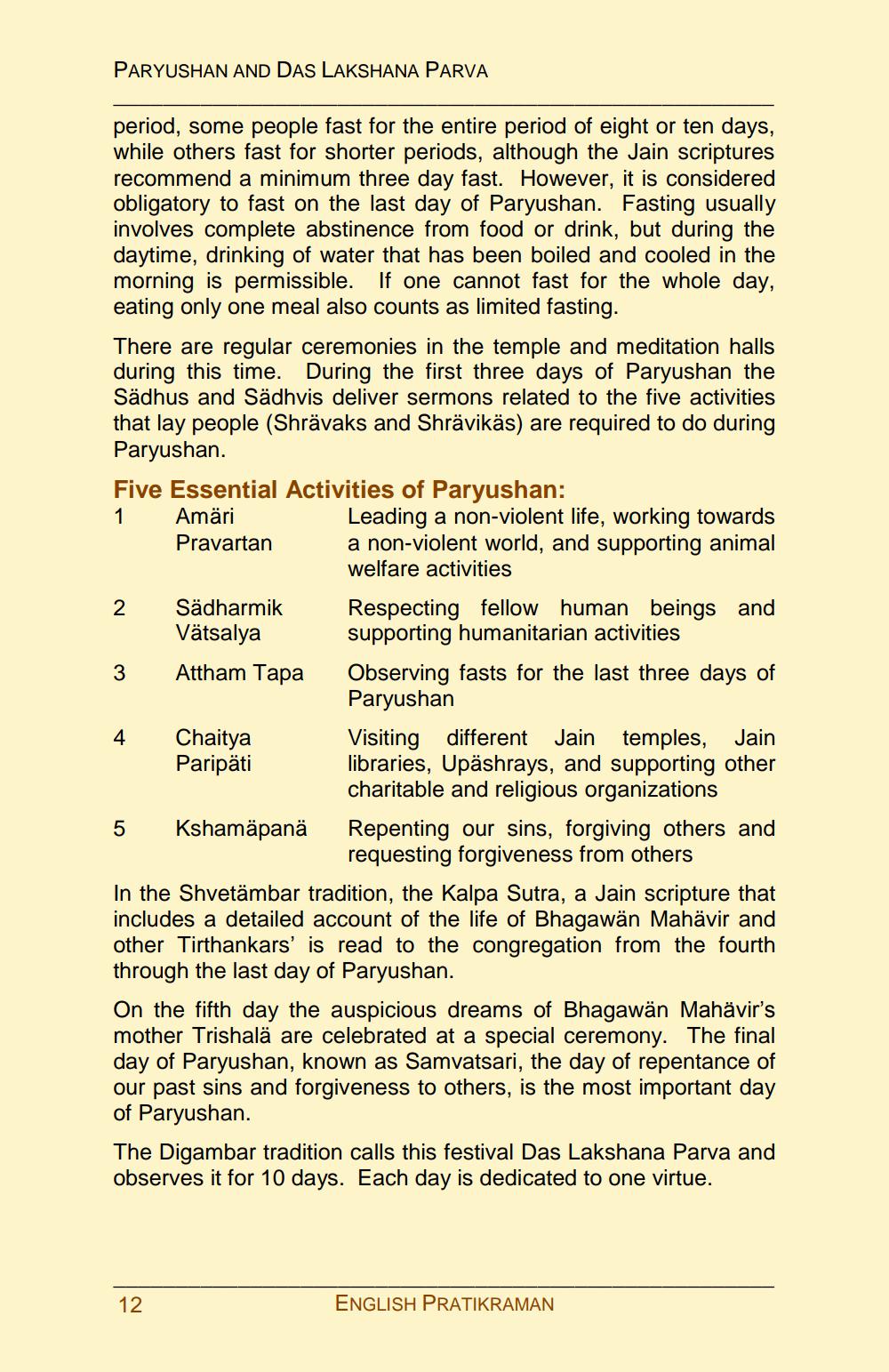________________
PARYUSHAN AND DAS LAKSHANA PARVA
period, some people fast for the entire period of eight or ten days, while others fast for shorter periods, although the Jain scriptures recommend a minimum three day fast. However, it is considered obligatory to fast on the last day of Paryushan. Fasting usually involves complete abstinence from food or drink, but during the daytime, drinking of water that has been boiled and cooled in the morning is permissible. If one cannot fast for the whole day, eating only one meal also counts as limited fasting.
There are regular ceremonies in the temple and meditation halls during this time. During the first three days of Paryushan the Sädhus and Sadhvis deliver sermons related to the five activities that lay people (Shrävaks and Shrävikäs) are required to do during Paryushan. Five Essential Activities of Paryushan: Amäri
Leading a non-violent life, working towards Pravartan a non-violent world, and supporting animal
welfare activities
Sädharmik Respecting fellow human beings and Vätsalya supporting humanitarian activities Attham Tapa Observing fasts for the last three days of
Paryushan Chaitya
Visiting different Jain temples, Jain Paripäti libraries, Upäshrays, and supporting other
charitable and religious organizations 5 Kshamäpanä Repenting our sins, forgiving others and
requesting forgiveness from others In the Shvetämbar tradition, the Kalpa Sutra, a Jain scripture that includes a detailed account of the life of Bhagawan Mahävir and other Tirthankars' is read to the congregation from the fourth through the last day of Paryushan. On the fifth day the auspicious dreams of Bhagawan Mahävir's mother Trishalä are celebrated at a special ceremony. The final day of Paryushan, known as Samvatsari, the day of repentance of our past sins and forgiveness to others, is the most important day of Paryushan.
The Digambar tradition calls this festival Das Lakshana Parva and observes it for 10 days. Each day is dedicated to one virtue.
12
ENGLISH PRATIKRAMAN




